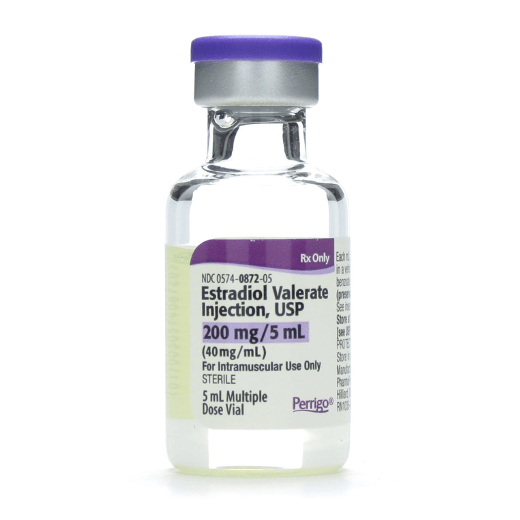The Importance of Medications During Surrogacy
When we sign up for surrogacy, we know that we are also signing up to take medications. This comes with a huge responsibility because when doing IVF (Invitro fertilization), the medications are what helps your body prepare and sustain a pregnancy. Medications can come in all different forms such as pills, patches, suppositories, lozenges, and injections. Knowing these medications are absolutely crucial for pregnancy, many people start to wonder. What are these medications for and what do they do?
After the legal process is finished, you will start the embryo transfer process. Your clinic will give you a cycle calendar that includes many different medications. These medications will depend specifically on your clinic. Some clinics have different protocols and you may never use some of the medications listed here.

Birth Control Pills

Birth control pills may be something you start as early as medical screening. When prescribing birth control pills, the clinic can manipulate your cycle better. Even if your period is very regular, the clinic needs to have better control on when exactly you will start your period so that they can plan your cycle calendar accordingly. Why is it important? While staying safe during sex is also very important to prevent your own natural pregnancy, birth control gives your doctor complete control over the cycle which can make things flow much more smoothly. They also help suppress your own ovulation. Some side effects are weight gain, bloating, moodiness and headaches.
Prenatal Vitamins
Prenatal vitamins are an excellent source of vitamins to ensure your body and the embryo are getting the proper nutrients before and after the embryo transfer procedure. Why is it important? They encourage healthy growth and development for the baby. Some side effects include mild constipation, diarrhea, upset stomach or nausea.
Lupron

Lupron is a fertility drug that is always injected into the stomach or thigh with a ½ inch needle. It prevents your body from ovulating in its own natural cycle. Why is this important? Lupron shuts down your ovaries to prevent ovulation which gives your reproductive endocrinologist better control over your cycle. Normal side effects of Lupron are headaches, hot flashes, and fatigue.
Estrogen

Progesterone

Progesterone is one of the key medications to sustain a pregnancy after the embryo transfer procedure. During a natural pregnancy, progesterone is a hormone that is released by the corpus luteum after your body has ovulated. This hormone tells the body not to shed that fluffy lining that was built from the estrogen. Since you will be doing IVF, the body does not naturally make this hormone which is why we must take it manually. Progesterone is usually administered through injections and/or suppositories but can also come in lozenges and pill form. Why is it important? Without progesterone, your uterus will begin to contract and will shed the uterine lining. This will also shed any embryo that has implanted. Some of the side effects of progesterone are common pregnancy symptoms: bloating, irritability, tenderness of breasts, dizziness, and discharge. You may also experience some discomfort in the injection sites.
Doxycycline
Doxycycline is an oral antibiotic that helps fight bacterial in the body. During the embryo transfer procedure, there is a small risk of bacteria being introduced through your cervix. Why is it important? The doxycycline can help your body fight off any possible infections that may or may not cause your body to reject the embryo. Usually, there are not any side effects of this medication.
Medrol
Medrol is a low-dose oral steroid that is used to suppress the autoimmune system. Why is this important? This can help strengthen your immune system so that your body does not reject the embryo. There are usually not any side effects with Medrol.
Aspirin
Aspirin is normally taken orally for minor pain relief or headaches. It is also a blood thinner. That is one of the reasons that some reproductive endocrinologists will prescribe it. Some believe that the hormone medications taken during surrogacy may place surrogates at a slightly higher risk of blood clots. Why is it important? Many believe that it lowers the risk of blood clots in the pregnancy and can help increase implantation rates. Some possible side effects are bruising, upset stomach and heartburn.
Heparin

Heparin is another type of blood-thinning drug that is usually used to prevent and treat clots. It is injected into the stomach. Some reproductive endocrinologists will prescribe this medication to help the embryo implant. Why is it important? Research studies have shown that the use of heparin during IVF may improve the uterine lining making the embryo have a better environment to attach to. Since heparin is a blood thinner, it can make it easier for you to bruise, especially in the injection site.
Final Thoughts
Please remember again that every doctor and every protocol is different. Not every surrogate will take the same medications and they may not even take the same doses of the medications. This is why it is very important to always follow your doctor’s instructions exactly. If you have any questions regarding medications or dosages, please reach out to your doctor immediately. We would much rather you ask questions than assume or Google. While medications are not fun, they are such an important part of the surrogacy process and take a lot of responsibility to maintain. Make sure you are setting alarms and organizing your meds to make sure you do not miss a single dose. Please also note that fertility medications can make it easier for you to conceive naturally. Make sure you are using protection and listening to your doctor’s instructions when it comes to sex. Listen to your body and always follow your doctor's instructions to help ensure the best chance of a successful surrogate pregnancy.
To begin your journey as a Surrogate with GSHC Surrogacy Agency, please complete our Surrogate Intake Form.
